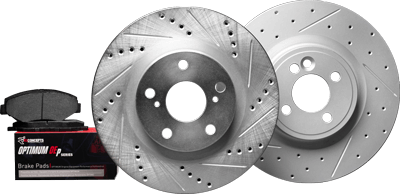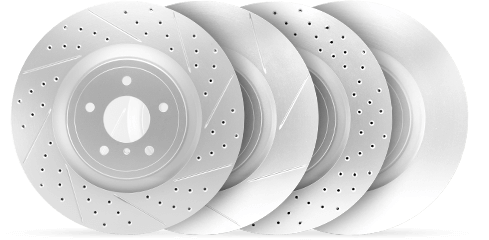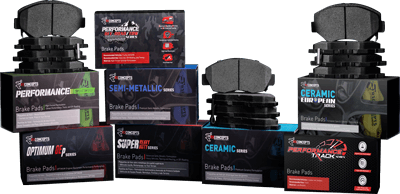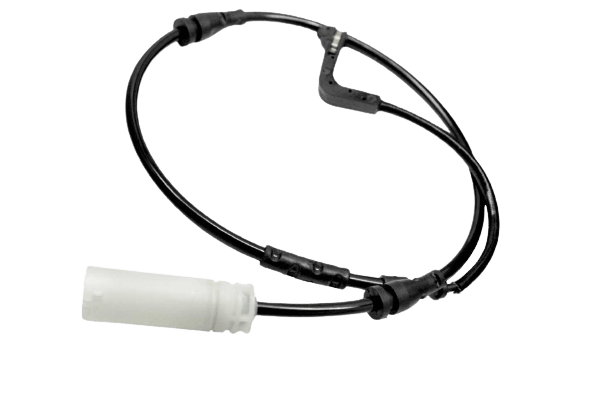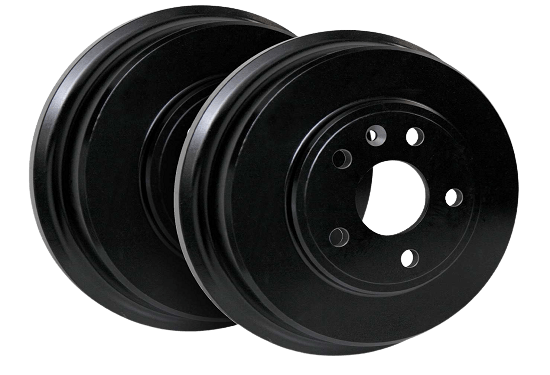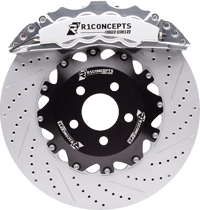Noisy brakes can be a nuisance. If you’re wondering how to grease brake calipers for silent and effective braking, you’re in the right place. We’ll walk through the importance of the right brake lubricant and provide a straightforward, step-by-step process to properly apply it, all while avoiding common pitfalls and mistakes. Get ready to enhance your vehicle’s brake performance with this practical guide.
Key Takeaways
Lubricating brake calipers correctly improves the stopping power of a vehicle, reduces brake noise, and makes for a smoother ride, but it requires the right kind of lubricant depending on the materials in use.
It’s crucial to have the right equipment, including safety gear, a vehicle manual, tools to lift the vehicle, and top-quality brake grease, to grease brake calipers safely and effectively.
The process of greasing is easy and can be done by yourself as long as you have the necessary tools mentioned.
Choose The Grease for Brake Calipers

The first thing you need to do to grease your brake calipers is to choose the right grease. R1 concepts recommends silicone-based greases and avoid using petroleum-based ones.
Silicon based lubes like Permatex and Sil-Glyde are ideal for greasing brake calipers due to their qualities.
Permatex provides excellent heat resistance and prevents brake squeal, rust, and corrosion. Sil-Glyde is safe on rubber, ensuring no swelling or softening, and offers excellent lubrication even in extreme weather. Both options resist oxidation and extend the lifespan of brake components.
It is best to avoid petroleum-based lubricants when choosing a grease for your brake caliper. Petroleum-based lubricants, while effective in some applications, can degrade rubber components over time. This can lead to a loss of elasticity and integrity in rubber seals and gaskets, which can cause leaks and other issues.
Furthermore, these lubricants can’t withstand the high temperatures generated by braking systems, which can cause them to break down and lose their lubricating properties. This can lead to increased wear and tear on brake components and potentially compromise the performance and safety of the braking system.
Tools and Equipment For Greasing Calipers

Safety Gears
Safety should always be your top priority when working on any vehicle, especially when dealing with brake systems. Here are the safety gears you need:
Safety Glasses: Protect your eyes from dust, debris, and brake fluid that may splash during the process.
Mechanic Gloves: Protect your hands from grease, dirt, and potential sharp edges.
Closed-Toe Shoes: Protect your feet from any heavy parts that might accidentally drop.
Tools and Equipment
Having the right tools and equipment can make the job of greasing brake calipers easier and more efficient. Here’s what you’ll need:
Car Jack and Jack Stands: These are used to safely lift and secure the vehicle off the ground.
Socket Set: You’ll need this to remove the caliper bolts.
Wire Brush: This is used to clean the caliper and other components before applying new grease.
Brake Cleaner: This is used in conjunction with the wire brush to thoroughly clean the components.
Vehicle Manual: This will provide specific information about your vehicle’s brake system.
Brake Caliper Greasing Procedure
With all the necessary tools and materials ready, we can now begin greasing the brake calipers and checking the parking brake cables.
Raise the Vehicle: Start by lifting the car using a jack and then make it steady with jack stands. Make sure the car is on a flat surface, lift the car, ideally 14 to 20 inches off the ground, but check if the height is enough for you to be able to work on with your calipers. Once the car is lifted, put the jack stands in place to keep it stable. Before you start working, give the car a little shake to make sure it’s secure.
Remove the Caliper: Next, remove the caliper from your car’s brake system to access various components that require lubrication.
Clean the Components: It is important to thoroughly clean these parts using a wire brush and specialized cleaner in order to get rid of any old grease or debris.
Inspect the Parts: After cleaning, carefully inspect for wear or damage on slide pins and boots before applying new grease.
Apply the Grease: Apply grease to the important parts, mainly slide pin surfaces, caliper bracket bores, caliper mounting bolts, and abutment clips (if your vehicle has them). Apply the grease evenly just a thin layer will do.
Reassemble the Caliper: Once you have applied fresh grease onto everything needed, reassemble everything back together properly while ensuring each component remains secured in place.
Bleed the Brakes: This leads us then towards bleeding the brakes, an essential process used by mechanics aiming at eliminating air blockage inside lines enabling smooth braking every time thereafter.
Is It Necessary To Grease My Calipers?
Yes, it is necessary to grease your brake calipers. Proper lubrication of brake your brakes, especially brake calipers is essential for the overall performance and longevity of your vehicle’s braking system. Greasing the calipers reduces friction, allows for smoother movement of the brake components, and prevents premature wear and tear. It also helps to keep brake noise to a minimum.
Consequences of Not Lubricating Brake Calipers
If you neglect to lubricate your brake calipers, several adverse effects could occur. Firstly, you might notice an increase in brake noise, including squeaking or squealing, due to increased friction between locking calipers. This friction can also lead to excessive wear and tear on your brake components, reducing their lifespan.
Secondly, the performance of your brakes could be negatively affected. Without proper lubrication, the movement of the caliper piston and the friction surface of brake pad could be hindered, leading to less effective braking. This could result in longer stopping distances and potentially compromise the safety of your vehicle.
Lastly, the lack of lubrication can cause the caliper components to seize due to rust and corrosion. This could eventually lead to brake failure which is a serious safety risk. Therefore, it’s crucial to ensure your brake calipers are adequately lubricated to maintain optimal brake performance and vehicle safety.
How Long Will It Take To Grease My Calipers?
The time it takes to apply brake grease to your brake calipers can vary depending on your level of experience and familiarity with the task. For someone who has never done it before, it might take up to 2-3 hours. This includes the time to gather all the necessary tools, lift the vehicle, remove the calipers, clean the components, apply the grease, and reassemble everything.
However, if you’re experienced with brake job and have all the necessary tools on hand, you could potentially complete the task in under an hour. Remember, it’s important not to rush the process. Taking the time to do it properly will ensure optimal performance and safety of your braking system.
How Much Will It Cost To Grease Calipers By A Mechanic?
The cost of having your brake calipers greased by a professional mechanic can vary widely based on your location, the mechanic’s rates, and the complexity of the job. On average, you can expect to pay between $100 and $200 for this service. This cost includes labor and materials.
Remember, while it might seem like a cost-saving measure to do this job yourself, if you’re not confident in your abilities, it’s always safer to hire a professional. Additionally, a professional mechanic can also inspect your brakes for any other potential issues during the service.
What Will Happen If I Over Lubricate My Brake Calipers?
Excess grease can attract dirt and debris, which can cause wear and tear on the brake components. Furthermore, if the excess grease gets on the brake pads or rotors, it can significantly reduce the braking power of disc brakes on your vehicle, leading to longer stopping distances and potentially dangerous driving conditions. Lastly, over-lubrication can result in leaks as the excess grease may force its way past seals. Therefore, while it’s important to ensure your brake calipers are well-lubricated, it’s equally important not to overdo it.
Summary
For a secure, noiseless, and effective ride, regular lubrication of your brake calipers is essential. Choosing the right grease, applying lubricant well, having the right tools, and adhering to the correct greasing process are all critical elements in enhancing your vehicle’s brake performance. So, remember, the next time you press the brakes, it’s not just about halting – it’s about achieving a seamless halt, courtesy of well-kept brake calipers.


